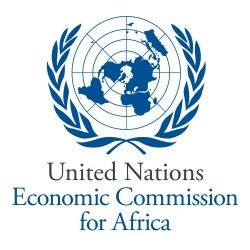All set for eighth conference on climate change & development in Africa, says ECA’s Murombedzi
All is set for the Eighth Conference on Climate Change and Development in Africa (CCDA VIII) which will be held in Addis Ababa from 28-30 August under the theme; ‘Stepping Up Climate Action for Resilient Economies in Africa’.
Mr. James Murombedzi, Chief of the African Climate Policy Center (ACPC) of United Nations Economic Commission for Africa (ECA), says the conference, which will be held at the African Union Conference Centre, will help ensure Africa comes up with a united position to take to the Climate Action Summit that is being convened in September 2019 by United Nations Secretary-General, António Guterres.
“The conference is important as it will discuss the impacts of climate change on the continent. Just earlier in the year we had cyclone Idai that killed thousands in Southern Africa and destroyed infrastructure estimated to be worth over a billion dollars. Those are real consequences that are impacting people’s lives on the continent which will be discussed during the meeting, among other topics,” said Mr. Murombedzi.
“The conference will also help ensure that Africa’s voice is amplified and heard at the summit in New York in September,” he added.
The conference, which will bring together the continent’s climate stakeholders, will also examine the Africa’s Nationally Determined Contributions and define additional actionable climate interventions to alleviate the impacts of climate change on ordinary people.
Impacts of climate change are being felt everywhere and are having very real consequences on people’s lives with national economies being disrupted; increasing costs and negative impacts on health, livelihoods and ecosystems.
Climate change is also accelerating environmental degradation and species loss, generating conflicts, and constraining the ability of most African countries to attain the global sustainable development goals and ideals of Africa’s Agenda 2063.
In recognition of this unfolding crisis, Mr. Guterres has convened the Climate Action Summit in September. He has also called on world leaders to come to the meeting with concrete, realistic plans to enhance their nationally determined contributions by 2020, in line with reducing greenhouse gas emissions by 45 per cent over the next decade, and to net zero emissions by 2050 as called for by the Inter-Governmental Panel on Climate Change (IPCC) report.
The UNSG said; “I want to hear about how we are going to stop the increase in emissions by 2020, and dramatically reduce emissions to reach net-zero emissions by mid-century.”
The Climate Action Summit is organized along six key themes and three additional areas as follows:
Key Themes
Climate Finance and Carbon pricing: mobilizing public and private sources of finance to drive decarbonization of all priority sectors and advance resilience; Co-led by France, Jamaica and Qatar and supported by the World Bank.
Energy Transition: accelerating the shift away from fossil fuels and towards renewable energy, as well as making significant gains in energy efficiency; Co-led by Ethiopia and Denmark
Industry Transition: transforming industries such as Oil and Gas, Steel, Cement, Chemicals and Information Technology; Co-led by India and Sweden and supported by the World Economic Forum
Nature-Based Solutions: Reducing emissions, increasing sink capacity and enhancing resilience within and across forestry, agriculture, oceans and food systems, including through biodiversity conservation, leveraging supply chains and technology; Co-led by China and New Zealand and supported by the United Nations Environment Programme (UNEP) and Mr. David Nabarro, Strategic Director of Skills, Systems and Synergies for Sustainable Development
Infrastructure, Cities and Local Action: Advancing mitigation and resilience at urban and local levels, with a focus on new commitments on low-emission buildings, mass transport and urban infrastructure; and resilience for the urban poor; Co-led by Kenya and Turkey
Resilience and Adaptation: advancing global efforts to address and manage the impacts and risks of climate change, particularly in those communities and nations most vulnerable. Co-led by Egypt and the United Kingdom and supported by United Nations Development Programme (UNDP).
The 8th CCDA Conference is organized by the ACPC and convenes under the auspices of the Climate for Development in Africa (ClimDev-Africa) programme. ClimDev is a consortium of key African development institutions, including the ECA, the African Union and the African Development Bank.




